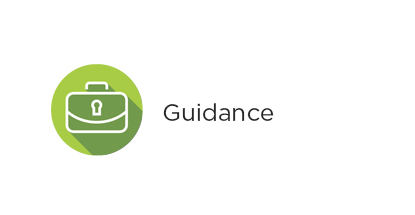
 As the only regulatory body for British Columbia’s accounting profession, CPABC works to protect the public by ensuring that members, students, and firms (registrants)1 meet the highest of professional standards.
As the only regulatory body for British Columbia’s accounting profession, CPABC works to protect the public by ensuring that members, students, and firms (registrants)1 meet the highest of professional standards.
CPABC’s Professional Conduct department receives about 100 complaints from the public each year concerning our members. While this is a relatively low number when you consider that there are now more than 37,000 CPAs in British Columbia, knowing this will be little consolation if you find yourself the subject of a complaint.
The following article is designed to help you avoid this situation. In it, we review the CPA profession’s ethical framework and suggest best practices to help CPAs stay onside.
The fundamental principles of ethical professional conduct
The CPABC Code of Professional Conduct (CPA Code) sets out the standards of professional conduct to which all registrants must adhere, along with corresponding rules and guidance. Excerpts from the preamble to the CPA Code, which outlines the five fundamental principles that govern the conduct of CPAs, are provided below:
- Professional Behaviour
“Chartered Professional Accountants must conduct themselves at all times in a manner which will maintain the good reputation of the profession and serve the public interest.
“In doing so, registrants are expected to avoid any action that would discredit the profession.
“… In particular, registrants who occupy positions of senior authority should recognize that such positions include an obligation to influence events, practices and attitudes within that organization. Accordingly, such registrants should encourage an ethics-based culture in their organizations that emphasizes the importance of ethical behaviour and compliance with generally accepted standards of practice of the profession.”
- Integrity and Due Care
“Chartered Professional Accountants must perform professional services with integrity and due care.
“Registrants are expected to be straightforward, honest and fair dealing in all professional relationships. They are also expected to act diligently according with applicable technical and professional standards when providing professional services…. Registrants are required to ensure that those performing professional services under their authority have adequate training and supervision.”
- Objectivity
“Chartered Professional Accountants do not allow their professional or business judgment to be compromised by bias, conflict of interest or the undue influence of others.
“… It [is] essential that a registrant will not subordinate professional judgment to external influences or the will of others.”
- Professional Competence
“Chartered Professional Accountants maintain their professional skills and competence by keeping informed of, and complying with, developments in their area of professional service.”
Note: Maintaining professional skills and competence includes meeting the requirements of continuing professional education on a consistent basis.
- Confidentiality
“Chartered Professional Accountants protect confidential information acquired as a result of professional, employment and business relationships and do not disclose it without proper and specific authority, nor do they exploit it for their personal advantage or the advantage of a third party.”
Proactive behaviour that helps prevent complaints
As noted in our March/April 2020 article “CPABC’s Disciplinary Process—Our First Five Years,” (and adapted for the Public Practice Knowledge Base) many of the complaints we have seen relate to poor communications, change-of-accountant situations, capacity, objectivity, and improper licensing. We have also seen that registrants can reduce the likelihood of a complaint being made to CPABC by incorporating the following proactive behaviours into their professional practice:
Knowing the client
The “Know Your Client” principle is a formal standard in the investment industry that “ensures investment advisors know detailed information about their clients’ risk tolerance, investment knowledge, and financial position.”2 CPABC registrants should follow a similar principle in dealing with clients. They should consider, for example, the complexity of a client’s operations, as this will be a key factor in determining the nature and extent of services needed. Integrity is another important consideration—registrants should conduct a diligent background check on any potential new client before agreeing to take them on.
In fact, registrants have certain obligations to fulfil when accepting new clients. For assurance engagements, registrants must adhere to the Canadian Standard on Quality Control, as set out in CPA Canada’s Quality Assurance Manual. For non-assurance and non-compilation engagements, registrants must follow the requirements set out by the Financial Transactions and Reports Analysis Centre of Canada (FINTRAC) in most new client situations.
Communicating well and frequently
Many of the complaints we receive stem from situations where communications between registrants and their clients have broken down. These include situations where a registrant repeatedly fails to return email messages and phone calls, and where a client claims the bill for services was much larger than expected. Registrants can greatly improve client satisfaction by communicating on a regular and timely basis and not allowing any problems to fester.
And with regard to billings, Rule 214 (Fee quotations and billings) states that registrants must “obtain adequate information before providing a fee quotation to a client for any professional service,” and “provide such appropriate explanations as are necessary to understand the billing.”
Using engagement letters
Registrants should use engagement letters to document important matters such as fees, deliverables, the limitation of liability, and potential conflicts of interest. Registrants who discuss potential problem areas with clients at the outset of an engagement and then document these problem areas in an engagement letter are more likely to achieve a successful resolution to any subsequent conflict.
Documenting your work and your discussions
Rule 218 (Retention of documentation and working papers) states that a registrant must “take reasonable steps to maintain information for which the registrant is responsible, including retaining for a reasonable period of time such working papers, records or other documentation which reasonably evidence the nature and extent of the work done in respect of any professional service.”
As noted in the guidance to Rule 218: “Cases may arise where a registrant may be required to substantiate procedures carried out in the course of providing professional services. If the files do not contain sufficient documentation to confirm the nature and extent of the work done, the registrant may have great difficulty demonstrating that proper procedures were in fact carried out. The importance of adequate documentation cannot be over-emphasized; without it, a registrant’s ability to outline and defend professional work is seriously impaired” (paragraph 1).
We have seen complaint situations in which registrants were unable to demonstrate that they’d discussed certain matters with clients or performed important engagement-related tasks. These cases have underscored the importance of proper documentation and retention.
Being alert for situations that may compromise your objectivity
Rule 202.2 (Objectivity) states: “A registrant shall not allow their professional or business judgment to be compromised by bias, conflict of interest or the undue influence of others.” Additionally, paragraph 13 of Guidance – Rule 202 states, in part, that registrants “must continually assess and manage the risks to objectivity and integrity.”
The most common complaints we receive regarding objectivity involve family or shareholder disputes that put registrants in the middle of competing sides of an issue. Registrants who find themselves in these kinds of delicate situations should exercise extreme caution and consult CPABC for guidance if needed.
Staying in your lane (aka areas of your expertise or specialty)
As mentioned earlier, CPABC occasionally receives complaints about registrants going beyond their skill set and working in technical areas where they have little or no experience or training. Registrants are reminded that they must not perform work unless they are technically competent to do so, in accordance with the CPA profession’s generally accepted standards of practice. There are many ways to obtain such technical competency, including through professional education, by consulting with outside experts, and by partnering with professional colleagues.
Ensuring the veracity and integrity of your work
Rule 205 (False or misleading documents and oral representations) states that registrants must not sign or associate with false or misleading information. Included in the guidance to Rule 205 is a reminder that “plagiarism and other forms of academic dishonesty are examples of association with false or misleading representations” (paragraph 3). This reminder is particularly important for candidates in the CPA Professional Education Program. The consequences of plagiarism could be suspension from the CPA program (as in recent cases) or even expulsion.
Do you need guidance?
The guidance in the CPA Code is designed to help you understand how the rules should be applied. CPABC’s professional standards advisors are also here to help. You can consult them for confidential guidance to ensure that you stay compliant with the CPA Code when navigating difficult situations. Contact our advisors by email: professionaladvisory@bccpa.ca.
Comments or questions about this article?
Contact the professional conduct department at professionalconduct@bccpa.ca.
Footnotes
- “Registrants,” as used in the CPABC Code of Professional Conduct, refers to members, students (candidates in the CPA Professional Education Program), and registered firms. The CPA Code does not apply to students enrolled in the CPA preparatory courses.
- James Chen, “Know Your Client (KYC),” Investopedia, updated Oct 28, 2020, investopedia.com.
Rate this Entry
Current rating: 0 yes votes, 0 no votes

